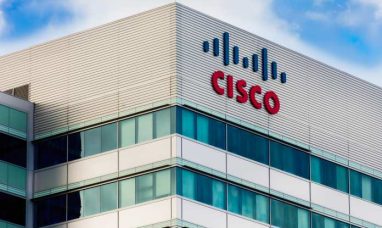Apple Inc (NASDAQ:AAPL)
Apple Inc. was established in 1976 by Steve Jobs, Steve Wozniak, and Ronald Wayne. Since its inception, the company has grown to become one of the most valuable and influential technology companies in the world. Apple has won the hearts and minds of customers as well as financial backers thanks to the company’s unparalleled expertise in the hardware, software, and service sectors. The company has risen to the forefront of the technology industry thanks to its unrelenting pursuit of innovation and its unwavering dedication to improving the experience of its customers.
This year, Big Tech has been the saving grace for the S&P 500 while the majority of other stocks have struggled. That could imply that opportunities exist outside of tech stocks, although investors should remain cautious due to the presence of certain risks.
The rise of major technology companies like Apple (NASDAQ:AAPL) and Microsoft (NASDAQ:MSFT), for example, has contributed to the rise of the S&P 500 by almost 8% so far this year. Both of these companies have seen gains of more than 30% each. They have a combined market value of slightly more than $5 trillion, which is equivalent to almost 15% of the total market value of the S&P 500. The level of the index is weighted by market value, which means that the movements in the share prices of these highly valued companies have a significant impact on the movement of the index.
Lower bond yields and better earnings than expected are the primary contributors to the rise in the value of big technology companies. The application of artificial intelligence, which is responsible for driving product enhancements, is beneficial to both sales and earnings. The decline in yields on long-term bonds has the effect of increasing the value of future cash profits; however, these expanding businesses are still valued on the assumption that the majority of their profits will not materialize for many years.
During this same time period, the majority of the market has performed quite poorly. The performance of the Invesco S&P 500 Equal Weight exchange-traded fund (RSP) has been relatively consistent throughout the year. This exchange-traded fund assigns the same amount of weight to each stock that is included in the index. As a result, the outsized impact of large technology companies is mitigated, and the performance of the typical stock is reflected. According to Morgan Stanley’s research, since the end of 2022, it has underperformed the standard market value-weighted S&P 500 index and the degree to which it has underperformed since that time has been nearly as pronounced as it has been at any point over the course of the past couple of years.
The difference is that most stocks, other than those related to technology, have suffered losses due to a reduction in economic demand that is anticipated. The uncertainty caused by the delayed impact of the Federal Reserve’s short-term interest rate increases has caused the market to become tense. In addition, the recent problems that have been plaguing the banking industry are likely to further inhibit lending and spending.
Those individuals who are enthusiastic about non-tech names should take heart from all of this recent information. In light of recent developments, it is unlikely that the underperformance of the equal-weighted S&P 500 ETF will get significantly worse from here on out. After all, the price of the ETF is currently at a level that is relatively inexpensive when compared to that of the standard S&P 500, and this is the lowest it has been in the past few years.
If the market continues to rise, it is possible that the majority of non-tech stocks will outperform Big Tech as well as the traditional S&P 500. If the market as a whole and technology fall, it’s possible that the average stock will be able to hold its ground better. This is especially the case if it appears that the decline in economic growth may be nearing its end. Already, both the rate of inflation and the growth of the gross domestic product have slowed down to some degree. Investors are concerned that there will be further devastation in the near future; however, if the economy is able to stabilize by, say, the end of this year, the majority of stocks could start to see substantial gains, particularly if the Fed stops hiking interest rates.
These are important topics to keep an eye on for those who are on the fence about purchasing large-cap technology stocks following their incredible run higher.
High Levels of Both Performance and Stability in the Financial Sector
Apple’s performance in the financial markets has been nothing short of extraordinary. Strong product sales and a dedicated customer base are the primary factors driving the consistent and robust revenue growth that the company experiences. Furthermore, Apple’s dedication to sound financial management has resulted in a healthy balance sheet, significant cash reserves, and a history of returning value to shareholders in the form of dividends and share buybacks. These benefits have been achieved as a direct result of Apple’s commitment to prudent financial management. These factors contribute to the overall stability of Apple as an investment opportunity and contribute to the company’s attractiveness.
Apple’s Impact on the S&P 500
Because of its remarkable growth trajectory and market capitalization, Apple is now a significant component of the S&P 500 index. This index is widely regarded as a benchmark for measuring the overall performance of the U.S. stock market. The performance of Apple’s stock has a significant impact on the index because it is one of the largest companies whose shares are publicly traded. Apple is a crucial component of the S&P 500, so investors who want to get exposure to the index need to carefully evaluate the company’s prospects and the dynamics of the market as a whole.
Future Outlook and Growth Potential
Looking ahead, Apple’s future prospects remain promising. The company’s commitment to innovation, customer-centric approach, and expanding ecosystem is expected to drive sustained growth. As new technologies, such as 5G connectivity, artificial intelligence (AI), and the Internet of Things (IoT), continue to mature, Apple is well-positioned to capitalize on these trends and further solidify its market presence.
Featured Image:









